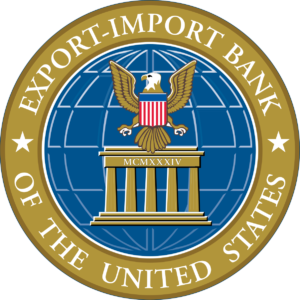A decision on whether to reauthorize the Export-Import Bank was delayed with the recent passage of a continuing resolution to provide funding for the government through November 21. Lobbyists for manufacturers and direct beneficiaries are pushing hard to renew Ex-Im, but taxpayers and the overall economy would be better served if Congress were to finally let the relic of the New Deal era expire.
The Ex-Im Bank provides taxpayer-backed loans to foreign buyers to facilitate U.S. exports, primarily of expensive goods such as capital equipment and airplanes. Exporters understandably love the agency, but just because certain industries like a policy doesn’t make it worthwhile.
The fundamental problem with the Ex-Im Bank is the same as with any instance of central planning: it injects political considerations into what — the allocation of capital — ought to be strictly market-based. The result is that a handful of large businesses receive the most benefits while taxpayers shoulder all the risk.
Another name for this arrangement is corporate welfare.
In 2015, sanity briefly prevailed when Ex-Im’s authorization was allowed to lapse. Unfortunately, a bipartisan coalition brought it back from the dead, only for Senate Republicans to refuse to confirm new nominees to the bank’s board and thereby deny it a quorum, which by rule meant that no new transactions above $10 million could be approved.
The board was filled earlier this year, but the four-year period from 2015-2018 where it operated in only a limited capacity provides reason to be skeptical about supporters’ claims regarding the bank’s critical economic role. George Will notes that the share of American exports subsidized by Ex-Im fell from less than 2 percent to 0.3 percent while Ex-Im was working at diminished capacity, but overall exports increased during that time.
The largest beneficiaries of Ex-Im similarly thrived during those years.
“Companies purchasing products from Boeing received 70 percent of all loan guarantees and 35 percent of all aid provided by the Ex-Im Bank” from FY 2007 through FY 2014, according to Veronique de Rugy and Justin Leventhal of the Mercatus Center. Without a quorum, the numbers changed dramatically, but it didn’t hurt Boeing’s bottom line. “Boeing’s profits and stock prices increased even though the company had to shop for export financing in the marketplace,” de Rugy and Leventhal reported in a study comparing Ex-Im’s financing before and after it lost its quorum.
Contrary to a common claim, there is apparently ample alternative financing available in the private market where taxpayers are not on the hook for potential losses. This is significant not only because private lending is preferable because it’s better for economic efficiency and not vulnerable to political corruption, but also because Ex-Im’s charter specifically requires that it not compete with the private sector. It supposedly provides financing only for transactions that would not otherwise occur were commercial lending the only option.
But Ex-Im doesn’t seem much concerned about its charter these days. The group Americans for Prosperity was recently forced to file a lawsuit against Ex-Im because it refused to respond to Freedom of Information Act requests regarding the seemingly ignored requirement in its charter that Ex-Im work “to reach international agreements to reduce government-subsidized export financing.”
In 2014, before the loss of its quorum and the cap on its lending, China was the top destination of Ex-Im deals, to the tune of $2.3 billion. A return to normal under a full board thus means more taxpayer-subsidized loans for Communist China.
Manufacturers are engaged in a lobbying blitz to reauthorize Ex-Im for an extended period. It’s thus easy to understand why cronyism is such a difficult habit to kick. However, there’s a growing consumer backlash against companies — the NBA, Apple, Activision Blizzard and ESPN, just in recent weeks — that are bending knee to China by censoring speech that is favorable toward Hong Kong’s protests or disparaging of Chinese authoritarianism.
Several members of Congress, such as senators Marco Rubio, R-Florida, and Ron Wyden, D-Oregon, criticized these U.S. companies for selling out American values to placate Chinese authorities. They would do well to remember that stance when it comes time to consider whether American taxpayers should be subsidizing the purchases of China’s state-owned enterprises.

